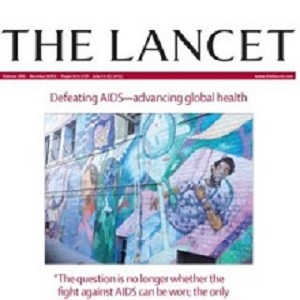 The Lancet journal has been criticised in an open letter over its statement that the World Health Organisation's judgment of misconduct regarding the Oxford INTERGROWTH-21st study.
The Lancet journal has been criticised in an open letter over its statement that the World Health Organisation's judgment of misconduct regarding the Oxford INTERGROWTH-21st study.
Lawrence D Platt at the David Geffen School of Medicine, University of California Los Angeles, Torvid Kiserud at the department of clinical science, University of Bergen, and Marshall Lindheimer at the departments of medicine, obstetrics & gynaecology, University of Chicago have taken issue with the Comment published in February, 2017, by members of The Lancet's editorial staff stating that World Health Organisation’s (WHO's) judgment of misconduct regarding the Oxford INTERGROWTH-21st study was unproven.
They write: “We are saddened by the fact that they base their conclusion on limited and biased material and simply dismiss the case as rivalry. As members of the WHO Foetal Growth research group and a former WHO external expert not associated with that trial but with evidence that WHO initially refused to hear, we wish to note the following.
“The Lancet editors presented the case as if the allegation of misconduct consisted merely of plagiarism or duplication of intellectual content, and therefore, did not mention the more decisive issues. These issues are more serious than those mentioned in the Comment, and stimulate us to outline them here.
“José Villar and Stephen Kennedy were members of our external advisory team, which was involved in preparing the WHO Foetal Growth Study. Forms were signed indicating no competing interests and both had also received a stipend to develop the protocol for the WHO Foetal Growth study. Months later, after delaying submitting their contracted work, they revealed that they had received a grant from the Gates Foundation to do the study at Oxford University. They apologised and offered to return the WHO stipend. We believe this application not only included intellectual content gleaned from their WHO committee but also had a significant effect on the WHO study. Unfortunately, WHO then clearly lacked the guidelines or instruments to investigate our concerns about scientific misconduct. Instead, the case was discussed only at a higher administrative level between WHO and Oxford University, without consulting our group, the very investigators involved in the WHO study.
“When we learned that WHO and Oxford University were about to settle the case without having addressed our major concerns about misconduct – including the details of the competing interests statement, not fulfilling the commission covered by the stipend, and delaying the WHO study – merely on the basis of the question of plagiarism, our research team immediately reacted.
“The entire WHO Foetal Growth Study research team demanded an independent investigation including all issues and parties. WHO agreed, but Oxford University disagreed. We still do not understand why an institution such as Oxford University repeatedly should decline an independent review of concerns about scientific misconduct, unless they had something to hide. We do not feel that an institution for whom a grant of £29m from the Bill & Melinda Gates Foundation was at stake can be regarded as unbiased in this case.
“In our view, Oxford University's claim of complete investigation is spurious. They have never sought data from ourselves, nor, equally importantly, from one of their own former faculty members who had been on the WHO Foetal Growth Study advisory committee.
“Transparency does not seem to have been the involved institutions' priority. We never received access to the full report of Oxford University's assessment, the external risk assessment commissioned by WHO, the questions WHO requested another four external experts to address or the content of their report, or the letter that WHO sent to the General Medical Council. Interestingly, The Lancet editors received some of these documents.
“We also wish to clarify that the Committee on Publication Ethics (COPE) did not look into the merits of the charges, but only into matters of due process at the journals affected.
“The handling of this case appears to us as an attempt to minimise the problem and to try to make it disappear silently. We have patiently pressed for an orderly independent review of all sides of these allegations instead of the present public show, but are increasingly concerned that large powerful organisations seem to have a different attitude towards ethics and how to handle related challenges.
“This is far from a complete account of this saga, but we had hoped that transparency and fairness should prevail and we were prepared to accept an independent assessment of all parts of the allegation.
“As it stands now, it looks to us like taking the intellectual content from the WHO Foetal Growth study to another project and, receiving money for developing the study and then not doing it, while having declared no conflict of interest, is approved scientific conduct.
“We declare no competing interests apart from the issues mentioned in this letter, and that Lawrence D Platt is external advisor to WHO, chair of the steering committee of the WHO Foetal Growth study, and he receives research support from GE Medical Systems; Torvid Kiserud is external advisor to WHO and member of the Sseering committee of the WHO Foetal Growth study; and Marshall Lindheimer has acted as external advisor to WHO in two former studies.
[link url="http://www.thelancet.com/journals/lancet/article/PIIS0140-6736(17)31365-X/fulltext"]The Lancet article[/link]
[link url="http://www.thelancet.com/journals/lancet/article/PIIS0140-6736(17)30321-5/fulltext"]The Lancet comment[/link]
